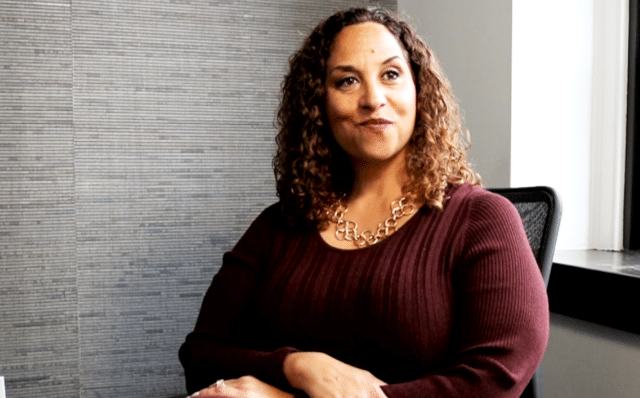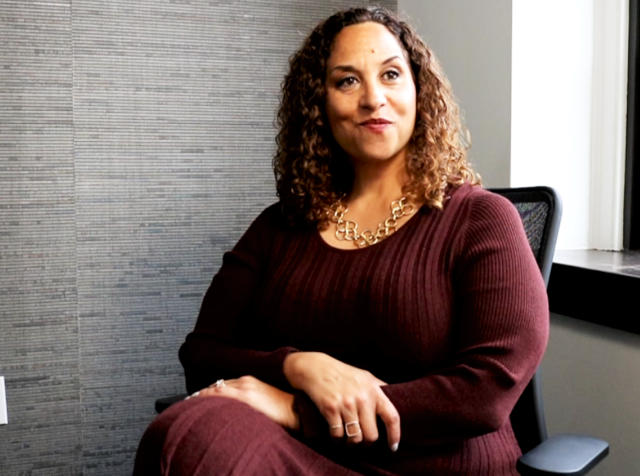Karen Horne, a Montclair State alumna who turned her hopes as a broadcasting major into a reality by working as an executive at NBC, returned to her alma mater last week to give some advice to aspiring journalists at the university.
Horne is the Senior Vice President of Programming Talent Development and Inclusion at NBC Entertainment in Los Angeles and a member of the Board of Visitors for the School of Communication and Media. Her work in the television industry has helped to create a more diverse climate for NBC both on-screen and behind the scenes.
Originally from Union, Horne aspired to be like her idol, Barbara Walters, by having her own news anchor desk and three-camera set up. However, at her first job as a receptionist for ABC Studios, when she finally met Walters, she had a change of heart.
“I met [Walters] when I was first working at ABC, and I told her that she was the reason why I was studying broadcasting, but then I stood back and saw the line of people waiting to meet Barbara, and the line to meet her boss.
His line was much longer. And I said, ‘Who is he, and what does he do?’”
Horne explained that this was when her interest in producing and writing first started. “That’s when I learned about the people that work in those offices which I now sit in,” said Horne.
Horne then spoke about how most colleges tend to not educate their students about these behind-the-scenes executive jobs. “Not many colleges today even teach you about the people who develop prime-time programming, the people that oversee shows currently on the air or the people who produce them,” said Horne.
Horne’s career of producing and developing talent began at HBO, when she developed the series, “Spawn.” It was there that she oversaw the writing staff. She was introduced to the “Spawn” comics by her husband, Andrew J. Horne, who produced two of Marvel’s first cinematic super-hero movies, “Blade” and “Blade II.”
As a producer for “Spawn,” Horne mentioned what key part she had in the series’ success. “[The] role was more of developing the stories and finding the writers for it. It was very much making the story true to what the comic books did,” said Horne.
It was this talent of being able to lead a creative writing team that translated into her later jobs of managing and developing talent.
“It’s tiring, but it’s one of the most rewarding things I’ve done in my career,” Horne said. “When I call a writer and tell them that a show wants to hire them and it’s the first time they’ve been hired on a show, their reaction is what keeps me going.”
When asked how she works towards keeping a more diverse environment at NBC, she answered, “My focus is on finding and developing more diverse talent. We do a nationwide search for stand-up [comedians], [and] we’re doing a pilot this year called ‘A Bronx Tale’ with Vlad Caamano, who is a comedian we found through ‘StandUp NBC.’ Deon Cole, who has had great success on ‘Blackish,’ is from my ‘StandUp NBC’ program. Four different shows this year are from our stand-up programs.”
Horne then explained the importance of more inclusive programming. “Diversity [is important] in broadcasting because we are becoming a society that looks more like we do in this room. Diversity is not risk. It’s good business and if you don’t believe me, just look at the success of ‘Empire’ on Fox.”




